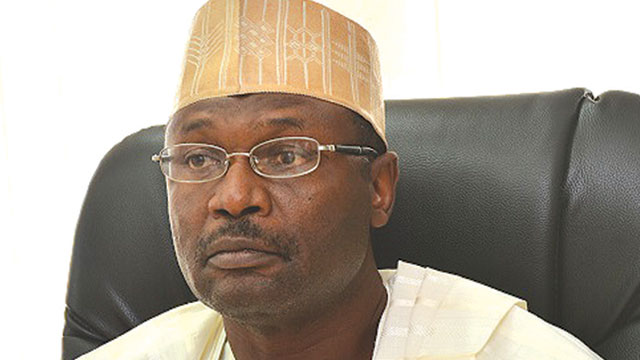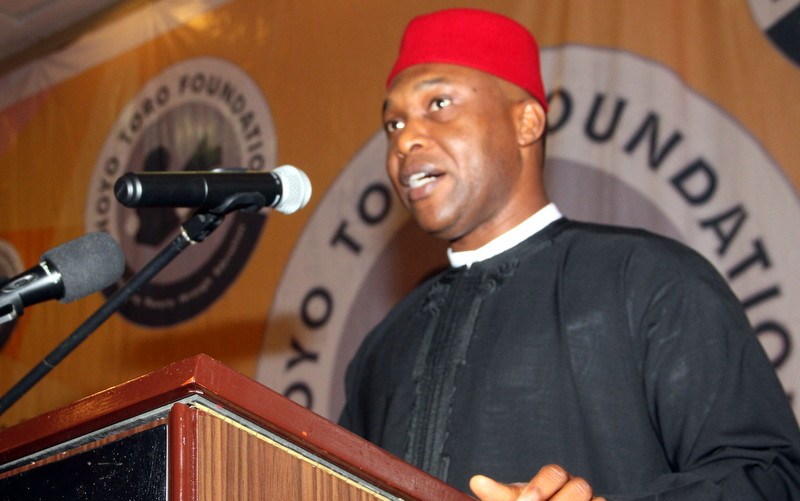Despite last week’s registration of 21 new political parties, the Independent National Electoral Commission (INEC) has revealed that it is under pressure to register 80 more political associations as political parties in Nigeria.
INEC Chairman, Prof. Mahmood Yakubu, stated this on Tuesday in Abuja while delivering a keynote address at the Nigeria Civil Society Situation Room National Stakeholders Forum on Elections.
Represented by a National Commissioner in the Commission, Kunle Ogunmola, the commission’s boss explained that the nation’s extant laws do not limit the number of political parties.
In his keynote presentation, Yakubu said: “We will continue to register parties as long as they comply with the provisions of the constitution. For now, we have registered 21 more parties, making a total of 67 now.”We have about 80 more applications from various associations, wanting to get registered as political parties. Our hands are tied. There is no way we can regulate it for now. We will continue to register them until the time stipulated by the constitution for us to put a stop to it”.
Last week, the electoral body announced the approval of 21 new political parties, increasing the number of parties from 46 to 67.A statement by the Commission’s National Commissioner and Member, Information and Voter Education Committee, May Agbamuche-Mbu, listed the political parties to include: All Blending Party (ABP), All Grassroots Alliance (AGA), Alliance for New Nigeria (ANN), Abundant Nigeria Renewal Party (ANRP), Coalition for Change (C4C), Freedom and Justice Party (FJP), Grassroots Development Party of Nigeria (GDPN) and Justice Must Prevail Party (JMPP).
Others are: Legacy Party of Nigeria (LPN), Mass Action Joint Alliance (MAJA), Modern Democratic Party (MDP), National Interest Party (NIP), National Rescue Mission (NRM), New Progressive Movement (NPM), Nigeria Democratic Congress Party (NDCP) and People’s Alliance for National Development and Liberty (PANDEL) among others. However, some political commentators have expressed concern that the move could create problem for voters to identify the political parties of their choice in the ballot papers during elections.
They hinged their argument on the low literacy rate in the country. One of the Constitution Alteration Bills passed by the 8th National Assembly, which has already been transmitted to the 36 state assemblies for adoption is a bill that allows for independent candidacy in Presidential, Governorship, National Assembly and State Houses of Assembly elections. While submitting that the large number of political parties will pose serious challenges for the Commission, Yakubu admitted that design and preparation of the ballot paper will be a hard nut to crack.
“By the time the issue of independent candidate comes into the fore, there will be more problems for INEC. Because right now, we are thinking of how we will design our ballot paper to take care of all the registered political parties,” he said. In his remarks, the Attorney General of the Federation and Minister of Justice, Abubakar Malami, said the government believes in a credible electoral process that provides a sustainable basis for the survival of democracy in the country.
Represented by Juliet Ibekaku-Nwagwu, Malami said government has given support to INEC to retain its independence and financial autonomy to enable it operate as a credible election umpire. In his opening remarks, the Executive Director, Policy and Legal Advocacy Centre (PLAC), Clement Nwankwo, said the event was organised to review the conduct of the Anambra State Governorship Election as well as share lessons and experiences for improved conduct of future polls in Nigeria.




